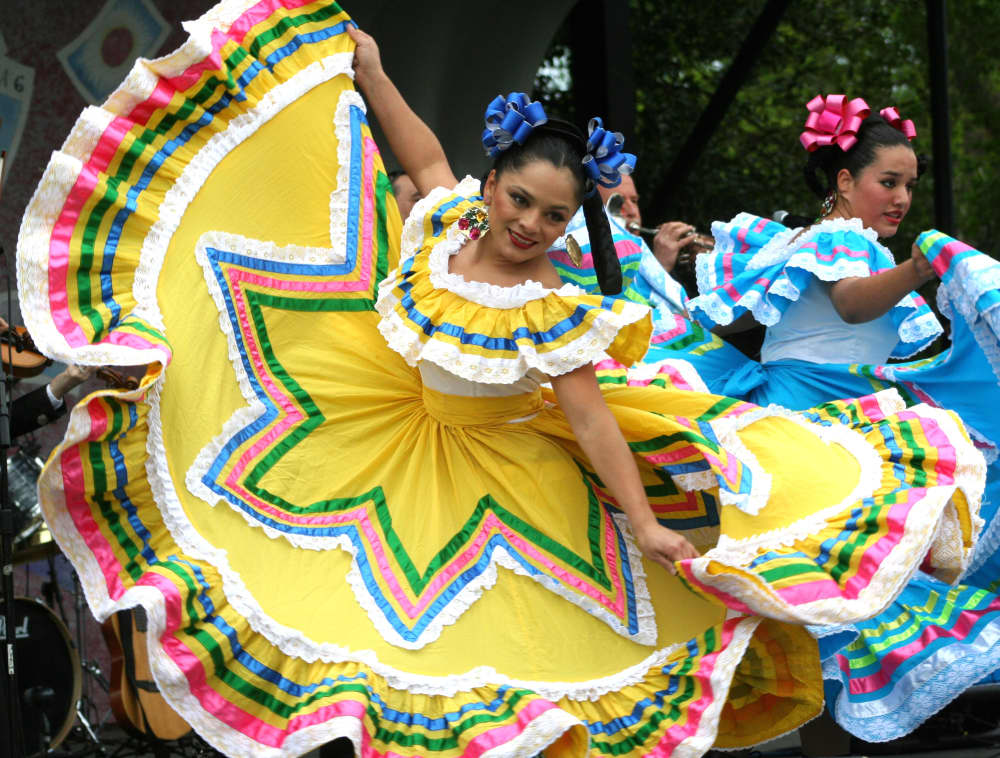Book talk
Advantage, Immigrants: Newcomers provide keys to happiness, author ClaudiaKolker finds
 Cinco de Mayo dancers
Cinco de Mayo dancers Houston's ChinatownPhoto by Hugh Hargrave/Greater Houston Convention and Visitors Bureau
Houston's ChinatownPhoto by Hugh Hargrave/Greater Houston Convention and Visitors Bureau Indian spices
Indian spices Author Claudia Kolker
Author Claudia Kolker The Immigrant Advantage
The Immigrant Advantage
When Houstonians think of Space City as the city of the future, it’s not an exaggeration, at least when it comes to demographics. In her book, The Immigrant Advantage: What We Can Learn from Newcomers to America about Health, Happiness, and Hope, Houston journalist Claudia Kolker notes that, because of immigrants and their children, 30 years in the future the rest of the United States will look like Houston does now.
While immigration laws and policy will probably remain controversial as long as there are elections, it’s hard to deny that historically the U.S has been a country that takes its immigrants’ good ideas, traditions, and especially food, and makes them our own.
Kolker has been studying and reporting on the lives of immigrants for decades and in that time has observed some of the best ways immigrants manage to survive and thrive in their new land. The Immigrant Advantage is an analysis of those traditions and customs and a look at how we, as individuals and communities, might use those practices for our own advantage.
When I recently spoke with Kolker about this immigrant advantage I asked her how the book began. “I been gathering for a long time ideas that seemed very functional and smart to me,” she explained.
“The real catalysis was living in Houston where I knew so many people from other places, who were immigrants themselves, who had practices that I saw in my daily life that I wanted to emulate."
But it was Houston itself that gave her the wherewithal to put those ideas and observations into a book.
“The real catalysis was living in Houston where I knew so many people from other places, who were immigrants themselves, who had practices that I saw in my daily life that I wanted to emulate, the way you end up emulating the things your friends do that seem to be successful,” she said.
Each chapter of the book takes a look at an immigrant tradition or custom Kolker believes we as individuals and as a culture might want to adapt for our own use. Somewhat coincidentally, each chapter also corresponds to a major stage or challenge most humans face at points in their life.
Practical solutions for everyday problems
Kolker started out with a list of immigrant practices that simply seemed like very practical solutions for everyday problems, like how to save a little extra money each month or how to find time to feed a family a home-cooked meal. She realized each of these practices provided a strategy for navigating those big life events, like becoming a mother, educating a child, gaining financial security, finding a spouse, or creating community.
“Once I had the seven or eight I wanted, it became very clear: Oh, these are really resonant because these are life stages that everyone, regardless of where you are from, has to grapple with, and I personally was grappling with, and why not put it in order,” Kolker described.
However, she didn’t set out to find an immigrant custom that corresponded to every significant life stage. Instead she explained, “These were the practices that jumped out at me that I wanted those outcomes for myself. It was very selfish. It was just what can these do for me? That was the criteria. They organized themselves.”
So can Vietnamese money clubs in Houston be an efficient and fun way to save money? Do older South Asian immigrants know the best match-making tricks when it comes to finding a mate for their adult children? Can the 40-day Mexican Cuarentena for new mothers, produce stronger mothers and babies? Is the secret to creating healthy communities found somewhere amid the sidewalks, stoops, and little shops of the poor Latino community in Chicago’s Little Village?
These are the types of questions the book sets out to explore.
Death is missing
The only life stage or life challenge missing from the book is death. This was a conscious choice by Kolker because so many death rituals are linked to specific religions. “I wanted things you don’t have to be a part of the religion or ethnic group to be able to cherry pick for your purposes,” she said.
While the book was thoroughly researched and contains 13 pages of endnotes, Immigrant Advantage will not overwhelm readers with pages of statistics or dry descriptions of cultural customs. Rather, Kolker introduces each practice through the perspective and true stories of first- and second-generation Americans who practice and adapt the traditions to their new home.
And the stories in the book call forth a slightly different genre for each chapter. The chapter on the South Asian way to find a mate has elements of a good romance. The money clubs chapters are filled with touches of suspense. Kolker even casts herself in the role of journalist gumshoe as she sets out to solve the mystery of low rates of childhood asthma in Little Village, Chicago.
The chapter on the South Asian way to find a mate has elements of a good romance. The money clubs chapters are filled with touches of suspense.
Kolker also weaves her own story and insights into the chapters as she attempts to follow and adapt some of these traditions into her own life. I asked her if that made her a representative for the reader as the book examines these likely unfamiliar customs.
“Yes. I should be a proxy," she replied with a laugh. "I’m pretty eccentric and in no way am I every woman. But I’m a pretty representative American in that I was born and raised here.”
Besides these stories, each chapter tends to contain bits of American cultural history that serve as reminders that some of our own neglected or forgotten traditions are not that different from the ones the most recent wave of immigrants have brought with them. An extended and multigenerational Jamaican family living in the same house in New Jersey might be quite a contrast to a suburban, nuclear American household today, but would have not seemed so different to a typical American family in the 19th Century.
“All of these customs, almost all of them, have some variation all over the world. If it works well it tends to survive and also tends adapt pretty well," she said. "I just wanted to make the point that these are not strange foreign ways that cancel out all our mistaken customs. Au contraire, they used to be our habits.”
Expanding on this idea, she explained, “The reason why they travel so well is because they’re comfortable, and they fit and they work and you can dress them up a little bit.”
Grab a good idea
When I asked Kolker what it will be like, this future America that reflects the diversity and international feel of present day Houston, she responded, “A good idea is a good idea. and I hope, and I do think, that as we change up demographically this classic American idea of grabbing on to a good idea and making use of it will live on and it’s going to enrich us.”
“We’ve got a lot of low cost, low tech, proven ideas for preventive health, for thrift, for family solidarity. We really need to make use of those ideas now. We’re under duress as a country. We can’t waste what we have right here.”
